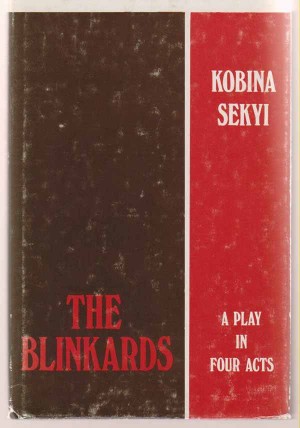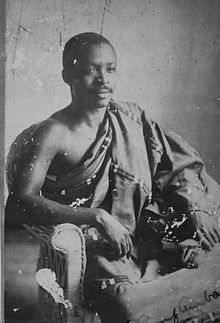DEFINITIONS OF BLINKARDS
1.one that blinks with or as if with weak eyes
2.a stupid, slow-witted, or obtuse person
LITERARY USAGE OF BLINKARDS
Below you will find example usage of BLINKARD as found in modern and/or classical literature:
3.Poems by Charles Kingsley (1856)
“Oh ! what blinkards are we gentlemen, to train any dumb beasts more carefully than we do Christians ;—that a man shall keep his dog-breakers, …”
4. Labour’s Wrongs and Labour’s Remedy: Or, The Age of Might and the Age of Right by John Francis Bray (1839)
“There are many of these mental blinkards at the present day; and any man who dares but to hope that the sons of labour shall not always be oppressed and …”
5. The Masterpieces and the History of Literature: Analysis, Criticism by Julian Hawthorne, John Russell Young, Oliver Herbrand Gordon Leigh, John Porter Lamberton (1906)
“Item, Because at that time they put no women into nunneries, but such as were either purblind, blinkards, lame, crooked, ill- favored, misshapen, fools, …”
6. Poems by Charles Kingsley (1856)
“Oh ! what blinkards are we gentlemen, to train any dumb beasts more carefully than we do Christians ;—that a man shall keep his dog-breakers, …”
7. Labour’s Wrongs and Labour’s Remedy: Or, The Age of Might and the Age of Right by John Francis Bray (1839)
“There are many of these mental blinkards at the present day; and any man who dares but to hope that the sons of labour shall not always be oppressed and …”
8.”Among the blind the one-eyed blinkard reigns.”- Marvell.
ABOUT THE BOOK
Title: The Blinkards, A Comedy (1915) and The Anglo-Fanti – A Short Story (1918)
Author: Kobina Sekyi
Genre: Play/Short Story
Pages: 256
9.The book contains two stories: The Blinkards – a play and The Anglo-Fanti – a short story.
SETTING OF THE BOOK
10.Though the stories are from two different genres, one theme thread through them: the effect of absolute cultural osmosis or better still the consequences of swallowing an alien culture without much scrutiny, as happened in occupied countries popularly referred to by the occupiers as colonies (colonies of what? Ants? Bees?)
11.Both stories took place in Cape Coast and the setting is very significant to the story. Apart from the author being a Fanti and hailing from Cape Coast, Cape Coast was the first point of introduction to colonial rule. As a seaport city, it was the first town that was first brought under colonial rule; hence there are numerous Castles and Forts scattered in Cape Coast and surrounding towns like Elimina and Anomabo. However, the inhabitants of this great city, which was the first capital of Ghana before it was moved to Accra in 1877, became anglicized to such an extent that even now a Fanti cannot speak a sentence without less than four English words.
12.They anglicized their local names into English such that you can hear Koomson, Blankson, Menson etc. Some have all foreign names without a local name. Yes, it is that serious. And it is this that Kobina Sekyi, who was also known as William Essuman-Gwira Sekyi was speaking against. Here, it would serve a good purpose if one realizes that the play was first performed somewhere around 1915 whereas The Anglo Fanti short story was first published in the West Africa magazine in 1918.
AUTHOR’S BIOGRAPHY
13.To understand why Kobina Sekyi, who himself was from the elite who were eagerly morphing into caricatures of hybrids, turned around to criticize the status quo, which in the beginning of the nineteenth century marked the borderline between civilization and bushmen up to today, one needs to read his biography.
14. Kobina Sekyi, the grandson of Chief Kofi Sekyi, was born in 1892 at Cape Coast (locally known as Oguaa). As a highly educated member of his society, he was brought up to believe that European culture was superior to African culture. He attended Mfantsipim Boys’ School (the oldest senior secondary school in Ghana) and went on to study English Literature at the University of London. However, a fellow student (Nigerian) persuaded him to give up English Literature in favour of Philosophy.
15. Sekyi returned to England in 1915 to study law. On the voyage out his boat, the SS Falaba, was torpedoed by a German U-boat and some lives were lost. Sekyi managed to get to a lifeboat, at which point a European shouted at him that he should get out of the boat, as a black man had no right to be alive when whites were drowning. It was this incident that had a profound effect on him, confirming his rejection of European pretensions to superiority. In 1918, Sekyi qualified as a barrister, and was awarded an MA in philosophy.
AND WIKIPEDIA SAYS
16.William Esuman-Gwira Sekyi, better known as Kobina Sekyi (1892-1956) was a nationalist lawyer, politician and writer in the Gold Coast.He was the son of John Gladstone Sackey, headmaster of the Wesleyan School in Cape Coast, who was himself the son of Chief Kofi Sekyi, the Chief Regent of Cape Coast.
17. Sekyi was educated at Mfantsipim School and studied philosophy at the University of London, accompanied to Britain by his maternal grandfather. He had originally wanted to become an engineer like his mother’s younger brother, J.B. Essuman-Gwira, but because his family controlled the purse strings and they wished him to study law, that was the career he entered. He was called to the Bar from the Inner Temple in 1918. Sekyi became a lawyer in private practice in the Gold Coast. He was president of the Aborigines’ Rights Protection Society, an executive member of the National Congress of British West Africa, and member of the Coussey Committee for constitutional change. He married Lilly Anna Cleanand, daughter of John Peter Cleanand and Elizabeth Vroom
WHAT IS THE BOOK ALL ABOUT?
18. Sekyi’s comedy The Blinkards (1915) satirized the acceptance by a colonized society of the attitudes of the colonizers.His novel The Anglo-FantI (1918) was the first English-language novel written in the Cape Coast.
OR
19.The Blinkards is a satirical comedy that exposes the negative attitudes of a society towards her own socio-cultural and even political values, and rather sees the values of the colonial master as superior and preferable.
OR
20.Kobina Sekyi’s ‘The Blinkards’ is a parody written in Fante and English. It is a successful piss-pulling comedy play on the elite of Cape Coast attempting to become more English than the English themselves, at the turn of the 20th century.
Related articles
- 2013 Gce/ssce Literature Candidates… Beware of the So-called “Current Waec Syllabuses” Circulating on the Net! (12) (lagosbooksclub.wordpress.com)


